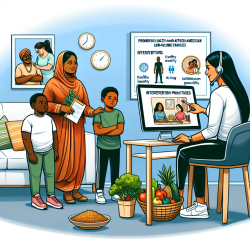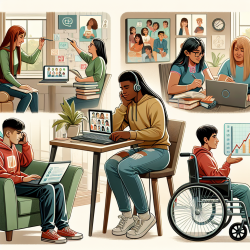In the realm of speech-language pathology, data-driven decisions and evidence-based practices are paramount. A recent scoping review, titled "Supporting young people's cognition and communication in the courtroom: A scoping review of current practices" by Turner and Hughes (2022), offers invaluable insights for practitioners. This blog aims to distill the key findings from the review and suggest actionable steps for practitioners working with young people in legal settings.
Key Findings from the Review
The scoping review evaluated the efficacy of support measures employed to facilitate access to court proceedings for young people with cognitive and communication impairments. The review identified 37 relevant papers published between 1993 and 2019, with the majority being published since 2010. Here are the salient points:
- High prevalence of cognitive and communication impairments among young people in contact with the criminal justice system.
- Support measures are generally viewed favorably by both young people and professionals.
- Lack of robust evaluative research to determine the most effective support measures.
- Increasing onus on professionals to adapt their practices to meet the needs of young people rather than enhancing their cognitive and communication skills.
Implementing the Outcomes: Practical Steps for Practitioners
While the review highlights the need for more robust research, there are several actionable steps practitioners can take to improve outcomes for young people in courtrooms:
1. Tailored Communication Strategies
Utilize individualized communication strategies tailored to the specific needs of each young person. This may include:
- Using simplified language and avoiding legal jargon.
- Employing visual aids and written materials to supplement verbal communication.
- Providing extra time for young people to process information and respond.
2. Training and Education
Invest in continuous professional development to stay updated on the latest evidence-based practices. Training should focus on:
- Recognizing and assessing cognitive and communication impairments.
- Implementing effective support measures in legal settings.
- Understanding the legal rights of young people with impairments.
3. Collaboration with Legal Professionals
Foster strong collaboration with legal professionals to ensure a holistic approach to supporting young people. This can be achieved by:
- Sharing knowledge and best practices with judges, lawyers, and court staff.
- Participating in multidisciplinary teams to develop comprehensive support plans.
- Advocating for the inclusion of speech-language pathologists in courtroom settings.
4. Advocating for Policy Changes
Engage in advocacy efforts to promote policy changes that support the needs of young people with cognitive and communication impairments. Key areas of focus should include:
- Ensuring the availability of trained intermediaries to facilitate communication.
- Promoting the use of special measures to protect vulnerable witnesses.
- Lobbying for mandatory training on cognitive and communication impairments for all legal professionals.
Encouraging Further Research
The review underscores the need for more robust evaluative research to determine the most effective support measures. Practitioners can contribute to this effort by:
- Participating in research studies and pilot programs.
- Collecting and sharing data on the outcomes of support measures implemented in their practice.
- Collaborating with academic institutions to conduct research on best practices.
Conclusion
Supporting young people's cognition and communication in the courtroom is a critical area that requires ongoing attention and improvement. By implementing tailored communication strategies, investing in training, collaborating with legal professionals, and advocating for policy changes, practitioners can make a significant impact. Additionally, contributing to and encouraging further research will help build a robust evidence base to guide future practices.To read the original research paper, please follow this link:
Supporting young people's cognition and communication in the courtroom: A scoping review of current practices.










